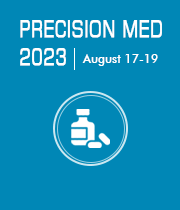Title: A systematic review of regulatory approaches for Direct- To- Consumers (DTC) genetic testing
Abstract:
Background: Genetic testing can be categorised into clinical and non-clinical genetic testing. A clinical genetic testing involves predictive screening or testing for a disease as well as purposes that purport to assess, diagnose, prevent, alleviate or treat a medical condition or disorder. On the other hand, non-clinical genetic testing which are usually available direct to consumers (DTC) refers to genetic testing for non- clinical purposes such as general wellness and recreational purposes (e.g. relationship testing, ancestry, innate behavioural traits/ lifestyle testing, nutrigenomics testing) which are not used to assess, diagnose, prevent, alleviate or treat a medical condition or disorder. Singapore adopts a caveat emptor approach, similar to other overseas jurisdictions such as the US and Australia, wherein clinical genetic tests cannot be offered as DTC tests. As DTC genetic testing becomes increasingly popular, concerns have been raised about the safety, accuracy and reliability of these tests, as well as the potential for misuse of genetic information. Regulatory bodies have responded by implementing various regulations or guidelines to ensure that DTC genetic testing companies meet certain standards for safety, accuracy, privacy, and transparency. For example, the Therapeutic Good Administration, Australia issued a guidance document on nutrigenetic tests.
Objective: The objective of this study is to identify the current regulations and/or guidelines, the rationale behind them as well as the challenges faced to provide recommendations for future regulations for DTC GT.
Methods: A systematic review was conducted to review all the existing guidelines and regulations on DTC GT. The search terms used for this study were 'direct to consumer,' 'genetic testing’, ‘regulation,' and 'legislation' and we expanded the search to incorporate any document in English that had the terms anywhere within the title or text. The evaluation included any document or paper that presented a position statement, policy, guideline, or recommendation for the use of DTC GT in any country and was prepared by a professional organisation or relevant authorities.
Results: The electronic database search retrieved 913 documents which were subjected to title and abstract screening, narrowing it down to 104 documents. Full-text screening of the 104 documents narrowed the eligible documents to 26 based on the inclusion criteria of the study. The final 26 articles were screened for statements pertaining to regulations in various countries and were tabulated in an Excel spreadsheet. The findings show that France, Germany, Portugal and Switzerland have specific legislations that defines that medically purposed DTC genetic tests can only be carried out by a medical doctor whereas Belgium and the United Kingdom allow the provision of DTC genetic tests1. In Canada, DTC GT is not regulated, however there are laws governing dissemination and use of consumers’ DTC GT results2. Bill S-201 which received Royal Assent and will soon become law stated that it prohibits the requirement that an individual submit to genetic testing or disclose the results of genetic tests in order to receive goods or services or in order to enter into or continue a contract or agreement, and it prohibits submission to genetic testing or disclosure of test results from being used as the basis of any specific conditions in a contract or agreement. In contrast, certain countries including Korea, Japan and China have very specific guidelines. The Korean government, for example, approved DTC GTs only on 42 genes related to 12 specific phenotypic traits such as body mass index, cholesterol, blood pressure3. Conclusion: This study identified the different approaches in the existing legislations and guidelines with respect to DTC GT. Some recommendations provided in these studies would be for policymakers to decide whether the present regulatory framework is adequate and to regulate the DTC-GT in proportion to their risks. Interestingly, guidelines or regulation addressing consumer education, codes of practice and test registries, which could enable to maintain the safety, accuracy and reliability of DTC GTs, remain sparse.
1 Pascal Borry, Rachel E van Hellemondt, Dominique Sprumont, Camilla Fittipaldi Duarte Jales, Emmanuelle Rial-Sebbag, Tade Matthias Spranger, Liam Curren, Jane Kaye, Herman Nys and Heidi Howard, (2012) Legislation on direct-to-consumer genetic testing in seven European countries.
2Cernat, A.; Bashir, N.S.; Ungar, W.J., (2022) Considerations for developing regulations for direct?to?consumer genetic testing: a scoping review using the 3?I framework.
3 Ilda Hoxhaja, Jovana Stojanovica; Michele Sassanoa; Anna Acamporaa; Stefania Bocciaa; (2020) A review of the legislation of direct-to-consumer genetic testing in EU member states.
Audience Take Away Notes:
- Regulations/ guidelines in place in various countries
- Challenges faced in regulating DTC-GT e.g. how data privacy remains a concern in regulating DTC-GT
- Recommendations for future regulations of DTC-GT
- Recommendations in ensuring safety, welfare and privacy of consumers using DTC-GT


